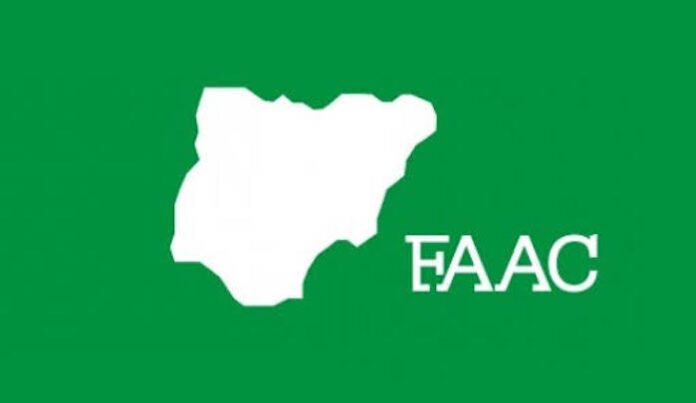A financial audit firm, OOM Professional Services, has flagged discrepancies totalling about N101.17bn in revenue remittances by the Nigeria Customs Service, prompting the Federation Account Allocation Committee to demand a full recovery and redistribution of the funds to the appropriate beneficiaries.
According to a FAAC Post Mortem Sub-Committee document obtained on Monday by our correspondent from a FAAC official involved in the ongoing revenue reconciliation meetings, the misclassification of funds and delayed remittances by commercial banks significantly distorted the statutory revenue sharing formula and short-changed sub-national governments.
The firm, which commenced operations in 2008 as Lanre Ogunwale & Co before rebranding as OOM Professional Services, was engaged by the Forum of Commissioners of Finance to conduct a detailed review of Customs remittances into the Federation Account for the 2022–2023 fiscal period.
The engagement culminated in the presentation of a report at the FAAC plenary session of 16th May, 2025, where the Chairman of the Forum informed members of the anomalies uncovered by the consultant.
Following deliberations, the Federal Ministry of Finance directed the FAAC Post Mortem Sub-Committee to verify and report with recommendations.
A follow-up stakeholders’ meeting was held on July 10, 2025, at Brick Wall Hotel, Asokoro, Abuja, attended by representatives of the Nigeria Customs Service, the Federal Inland Revenue Service, the Office of the Accountant-General of the Federation, the Central Bank of Nigeria, and the FAAC Secretariat.
The consultant re-presented its findings, which were unanimously agreed upon by the relevant agencies. “The FIRS and NCS representatives were in agreement with the position of the consultant. It was established that the findings of the consultant contained in the report were accurate,” the document noted.
One of the most critical errors identified in the report was the wrongful classification of N82,04bn (N82,037,823,474.76) as Import Duty instead of Import VAT. The funds were posted into the Federation Account instead of the VAT Pool Account by four commercial banks – Guaranty Trust Bank, Globus Bank, Taj Bank, and Nova Merchant Bank.
“The sum of N82,037,823,474.76 being Import VAT was wrongly posted into the Federation Account as Import Duty instead of the VAT Pool Account by four commercial banks, namely Guaranty Trust Bank, Globus Bank, Nova Merchant Bank, and Taj Bank,” the document stated.
Unlike VAT, which is shared under a separate formula that prioritises state and local governments, Import Duty is shared vertically, disproportionately favouring the Federal Government. The consequence, according to the committee, was a significant reduction in the share due to sub-national governments.
“The remittance of Import VAT into the Federation Account as Import Levy has significantly reduced the share of the sub-nationals due to the application of the vertical revenue sharing formula rather than the VAT Sharing formula,” the document noted.
In addition to the VAT misclassification, the report revealed that another N19.13bn (N19,130,495,656.89) was erroneously remitted to the Consolidated Revenue Fund of the Federal Government, instead of the Federation Account. Of the N22.05bn (N22,047,725,350.91) originally thought to belong to the CRF, only N2.92bn was actually due there.
“The NCS has confirmed that the sum of N19,130,495,656.89 was Federation Account revenue comprising Import Duty, Fees, Excise, and CET. While only N2,917,229,704.49, comprising CISS, ETLS, Iron Levy, Port Levy, and Wheat Grain Levy, was CRF revenue,” the document disclosed.
With the two misclassified sums combined, the total amount of funds wrongly posted stood at N101.17bn (N101,168,319,131.64). “The amounts posted in error were N82,037,823,474.76 as Import Duty and N19,130,495,656.89 to CRF, which totalled N101,168,319,131.64,” the committee noted.
![]()










